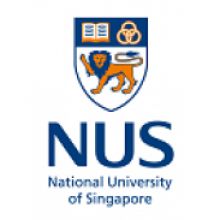National University of Singapore (NUS) assurances to students of Yale-NUS College will be impossible to fulfil, according to staff of the doomed institution.
In a 19-page “statement of concern”, anonymous academics have outlined their objections to NUS’s decision to wind up Yale-NUS and merge it with the University Scholars Programme (USP).
No new students will be admitted to the college, with its final cohort leaving in 2025. Continuing USP students will transition into the replacement institution, provisionally known as “New College”, in mid-2022.
The staff document poses some 30 “unresolved questions” concerning the operational detail, financial rationale and decision-making processes around the proposal. It asks how current students can continue to “enjoy the full Yale-NUS experience”, as promised by NUS, given that their overall numbers will plunge with each exiting cohort.
This is already worrying students, according to The Straits Times, which reported that Yale-NUS had vowed to refund tuition fees to first-year students who withdrew by mid-September and to negotiate course recognition for established students who wanted to transfer elsewhere.
The statement also asks how NUS can honour its promise to combine the “best features” of Yale-NUS and USP, given their clear differences. “How will the New College, a two-year honours college, deliver an education and outcomes…that resemble what Yale-NUS and other four-year liberal arts colleges provide?”
The document also queries how the new arrangement will deliver education at “greater scale”, as pledged by NUS, given that New College will have capacity for 500 enrolments – the same as its constituent institutions. The Yale and NUS presidents’ notion of making Yale-NUS more financially sustainable by doubling its enrolments, as reported in the Yale Daily News, has not been pursued.
The statement also asks why the college community was not made aware of concerns around Yale-NUS finances, and why NUS did not embrace Yale’s reported willingness to raise more funds for the college.
In communications with Times Higher Education, NUS did not directly address these questions. But a spokeswoman said that New College would have capacity for “up to” 500 students from the outset, in 2022, with the possibility of “ramping up” the intake in future years.
She said that Yale-NUS was committed to maintaining its current class sizes and would ensure that its academic programmes continued to be delivered in small groups by “high-quality” teachers. “Financial sustainability was an important consideration, but not the main motivation for the establishment of the New College,” she added.
The spokeswoman did not say whether the Yale-NUS governing board had been consulted before the announcement of the merger, or whether the plan had been put to any vote.
She said that staff and students had not been consulted “because the decision involved discussions between the senior leadership of two universities, and with their respective boards, on sensitive issues of strategy and finances”.
But she said that NUS had informed stakeholders as soon as possible once the “broad parameters” of the proposal had been determined. Since its announcement in late August, “we have been working closely with Yale-NUS and the USP to engage with staff, faculty, students and alumni to address their concerns and questions”.
The staff document stresses that it does not represent the views of all Yale-NUS academics. One author said that most opposed the merger but some disagreed with parts of the statement and others were uncomfortable about taking part.






